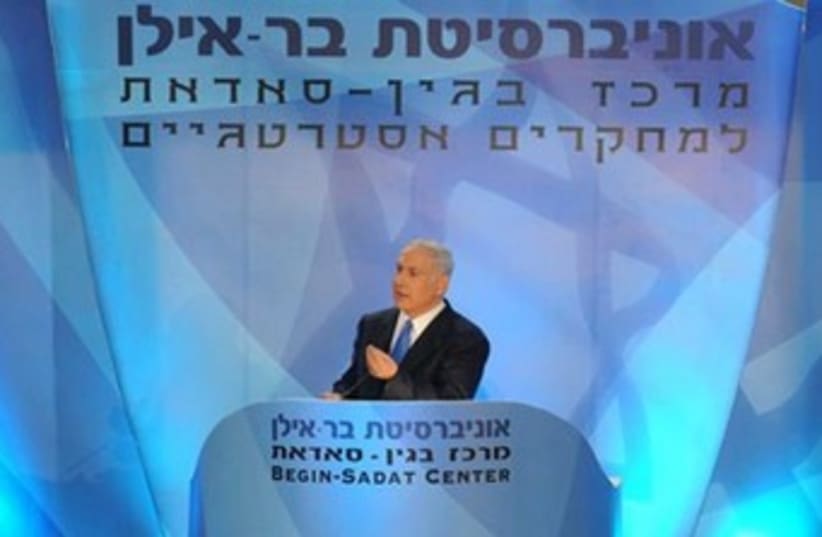Netanyahu lowers expectations for Israeli-Palestinian peace
Analysis: Speaking at venue where he recognized the two state solution in 2009, in 2013 Netanyahu takes a different angle and emphasizes the root of the conflict: The Palestinians don't want Jews to live in Israel.
